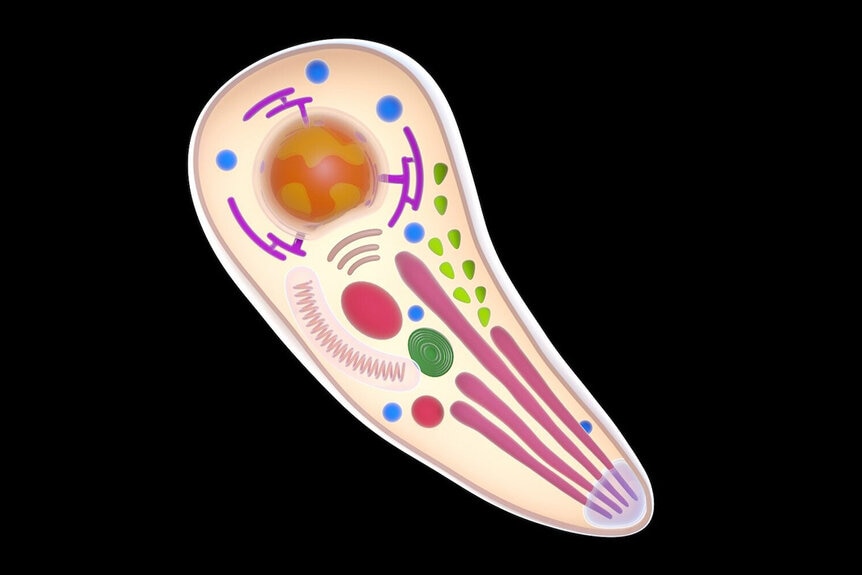Create a free profile to get unlimited access to exclusive videos, sweepstakes, and more!
This common feline parasite drives wolves to lead the pack or die alone
There's a roughly 1 in 10 chance you have this parasite too!

Peacock’s Wolf Like Me follows the stories of Gary (Josh Gad) and his 11-year-old daughter Emma (Ariel Donoghue) as they attempt to make a life together in the wake of tragedy. It’s been seven years since Emma’s mother died and things are getting complicated, mostly by the appearance of Mary (Isla Fisher), an advice columnist with a dark secret.
While there's plenty of mystery to unpack, Wolf Like Me ultimately derives its intrigue from the complications that come when relationships change, and power dynamics shift. That can happen because you’ve grown and changed, because you’re moving to a new place or starting a new phase of your life, or because you’ve become infected with a mind altering protozoan parasite. That’s according to a recent study carried out by researchers from the Yellowstone Wolf Project and published in the journal Communications Biology.
RELATED: Bad kitty! Chemical analysis of cat whiskers reveals cats kill because they can
The parasite in question is Toxoplasma gondii, a small protozoan famous for messing with its host’s brain. It’s capable of infecting any warm-blooded animal but is particularly common in cats, both domestic house cats and wild cat species. Unlike other parasites you may be familiar with, T. gondii appears to provide some benefit to its host, at least some of the time. When cats are infected, the parasite proliferates in their gut and is spread in their feces. When other animals, like mice for instance, get infected through contact with those feces they become less afraid of cats and thus easier to catch and kill.
It’s possible that you have been infected by the same parasite — it’s estimated about 11% of the population over the age of six has been infected, according to the CDC — and it could be changing your behavior.
What’s less clear is how the parasite impacts wild populations. That’s’ what researchers were determined to find out, at least within the wolf populations of Yellowstone. Gray wolves have historically lived in the Yellowstone area but when settlers arrived during the Westward Expansion, the wolves lost their territory and much of their food source. Consequently, they disappeared. Wolves returned to Yellowstone in 1995, the result of an intentional reintroduction effort. Since that time, the Yellowstone wolves have been continuously monitored and studied. Researchers have over 26 years of behavioral, geographical, and blood data from the park’s 229 wolves.
That data confirmed that wolf territory overlaps with the territory of cougars in Yellowstone, increasing the wolves’ likelihood of exposure to the T. gondii parasite. The presence of the parasite was confirmed within the wolf population, thanks to the blood tests, and behavioral data allowed researchers to see if infection changes the way individual wolves behave. Spoiler alert: it does! Wolves with confirmed parasite infections were significantly more likely to engage in high-risk behaviors than their uninfected peers.
That it has this specific effect shouldn’t be too surprising. Increased high-risk behavior in wolves could be the result of the same interaction which gets mice eaten, a decrease or a total loss of fear. Researchers found that infected wolves were 11 times more likely to leave their pack altogether and set out for parts unknown, and they’re 46 times as likely to start up their own pack and install themselves at the top.
Like the hunting benefit T. gondii provides cats, this behavioral change in wolves might be advantageous. If you can leave home and start a pack of your own, a pack you’re in charge of, your odds of survival and reproduction increase dramatically.
What’s more, researchers suggested their may be a feedback loop which maintains and possibly even accelerates the cycle of infection. Infected wolves take more risks, they increase their territory and overlap more often with wild big cats, so the infection rate increases, and the cycle continues. That’s great for the parasite and it’s great for the wolves who use their new, riskier behavior to their benefit. But starting a new pack is only one possible outcome of striking out on your own. The other is that you die alone.
Infected wolves are more likely to achieve dominant social status, but they’re also more likely to die in fights with other wolves or through increased interactions with humans. The pack is a social safety net and T. gondii punches holes in it. That’s fine if you can build a new net with you at the center, but it can be deadly if you can’t.
Wolf Like Me will return with a second season. In the meantime, you can catch the first season, streaming now on Peacock!



























